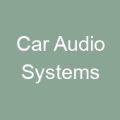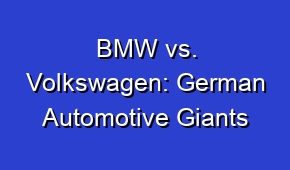Car Care Tips

Get expert car care tips for maintaining your vehicle’s performance and longevity. Keep it clean, check fluids regularly, and stick to the maintenance schedule.
Taking care of your car is essential to keep it running smoothly and efficiently. Regular car maintenance can help prevent major issues and save you money in the long run. One of the most important car care tips is to regularly check and change your oil. This helps lubricate the engine and prevents unnecessary wear and tear. Another crucial tip is to keep an eye on your tire pressure and make sure they are properly inflated. This not only improves fuel efficiency but also enhances safety on the road. Additionally, don’t forget to clean both the interior and exterior of your car regularly to maintain its appearance and value. Lastly, scheduling regular car inspections and tune-ups with a trusted mechanic can help identify and fix any potential issues before they become major problems.
| 1. Regularly check and maintain proper tire pressure to ensure safety and fuel efficiency. |
| 2. Change your car’s oil and oil filter regularly to keep the engine running smoothly. |
| 3. Clean your car’s exterior regularly to prevent damage from dirt, debris, and pollutants. |
| 4. Keep your windshield and windows clean for optimal visibility while driving. |
| 5. Check and replace worn-out wiper blades to ensure clear visibility during rainy weather. |
- 6. Use a high-quality car wax to protect the paint and preserve its shine.
- 7. Inspect and replace faulty or dimming headlights for better nighttime visibility.
- 8. Regularly clean and condition your car’s leather seats to maintain their softness and prevent cracking.
- 9. Avoid slamming the car doors to prevent damage to the hinges and locks.
- 10. Check and replace the air filter regularly to ensure proper air flow and fuel efficiency.
Why is regular oil change important for car maintenance?
Regular oil changes are crucial for maintaining the health of your car’s engine. The oil lubricates the engine’s moving parts, helping reduce friction and wear. Over time, the oil can become contaminated with dirt and debris, which can hinder its ability to perform effectively. Changing the oil at recommended intervals ensures that the engine is properly lubricated, preventing damage and extending its lifespan.
How often should I check my tire pressure?
It is recommended to check your tire pressure at least once a month or before long trips. Proper tire pressure is essential for optimal fuel efficiency, tire lifespan, and vehicle handling. Underinflated tires can lead to increased fuel consumption, uneven tire wear, and reduced traction, while overinflated tires can cause a harsher ride and increased risk of a blowout.
What are the signs of a worn-out brake system?
Signs of a worn-out brake system include squeaking or grinding noises, reduced braking responsiveness, a pulsating brake pedal, and a longer stopping distance. It is important to address these issues promptly as they can compromise your safety on the road. Regular brake inspections and maintenance can help prevent more severe brake problems and ensure your brakes are functioning optimally.
How often should I replace my car’s air filter?
It is generally recommended to replace your car’s air filter every 12,000 to 15,000 miles or as indicated in your vehicle’s owner manual. A dirty or clogged air filter can restrict airflow to the engine, reducing fuel efficiency and engine performance. Regularly replacing the air filter helps maintain proper engine function and extends the life of other engine components.
What should I do if my car overheats?
If your car overheats, it is crucial to take immediate action to prevent further damage. Safely pull over to the side of the road, turn off the engine, and wait for it to cool down. Do not attempt to remove the radiator cap while the engine is hot, as it can cause severe burns. Once the engine has cooled, check the coolant level and add more if necessary. If the problem persists, it is recommended to have your car inspected by a professional mechanic.
How can I improve my car’s fuel efficiency?
To improve your car’s fuel efficiency, ensure your tires are properly inflated, avoid aggressive driving and excessive idling, maintain a steady speed on the highway, and remove unnecessary weight from your vehicle. Regular maintenance, such as oil changes and air filter replacements, can also contribute to better fuel economy. Using the recommended grade of motor oil and following the manufacturer’s guidelines for maintenance can further optimize your car’s fuel efficiency.
Why is it important to regularly rotate my tires?
Regular tire rotations help ensure even wear on all four tires, extending their lifespan and improving overall vehicle performance. Front tires tend to wear more quickly than rear tires due to factors like weight distribution and steering forces. By rotating the tires at recommended intervals, you can help maintain balanced tread wear, enhance traction, and improve handling and braking performance.
How can I prevent my car’s paint from fading?
To prevent your car’s paint from fading, it is important to park in shaded areas or use a car cover to protect it from direct sunlight. Regularly washing and waxing your car helps remove dirt, grime, and pollutants that can contribute to paint damage. Applying a quality paint sealant or ceramic coating can provide an additional layer of protection against UV rays and other environmental factors that can fade your car’s paint.
What should I do if my car battery dies?
If your car battery dies, you can try jump-starting it with the help of another vehicle or a portable jump starter. Connect the positive (+) and negative (-) terminals of the dead battery to the corresponding terminals of the working battery or jump starter, and then start your car. Once your car is running, drive it for at least 20 minutes to allow the alternator to recharge the battery. If jump-starting doesn’t work, it may be necessary to replace the battery.
How often should I replace my windshield wipers?
Windshield wipers should be replaced every 6 to 12 months or as soon as you notice streaking, skipping, or smearing on your windshield. Worn-out wiper blades can reduce visibility during rain or snow, compromising your safety on the road. Regularly replacing your windshield wipers ensures clear visibility and effective removal of water, dirt, and debris from your windshield.
Why is it important to maintain proper tire alignment?
Maintaining proper tire alignment helps ensure even tire wear, optimal fuel efficiency, and improved vehicle handling. Misaligned tires can cause uneven tread wear, leading to premature tire replacement and reduced traction. It can also result in your vehicle pulling to one side, affecting its stability and safety. Regular alignment checks and adjustments can help prevent these issues and ensure a smoother and safer driving experience.
How can I protect my car’s interior from UV damage?
To protect your car’s interior from UV damage, park in shaded areas or use sunshades to block direct sunlight. Applying a UV-protective window film can also help reduce the amount of UV rays entering your car. Regularly cleaning and conditioning your car’s interior surfaces can prevent fading, cracking, and discoloration caused by prolonged sun exposure. Using seat covers and protective floor mats can further shield your car’s interior from UV damage and wear.
What are the benefits of regular car washes?
Regular car washes help remove dirt, road grime, and salt buildup that can corrode your car’s paint and undercarriage. Washing your car also improves its appearance and preserves its resale value. It is important to use a gentle car wash soap and avoid abrasive materials that can scratch the paint. Additionally, drying your car thoroughly after washing helps prevent water spots and further protect the paint finish.
How often should I change my car’s spark plugs?
The recommended interval for changing spark plugs varies depending on your vehicle’s make and model. Generally, it is recommended to replace spark plugs every 30,000 to 100,000 miles. Worn-out or fouled spark plugs can cause misfires, reduced fuel efficiency, and engine performance issues. Regularly inspecting and replacing spark plugs helps maintain optimal combustion and overall engine health.
What should I do if my check engine light comes on?
If your check engine light comes on, it is important to have your car inspected by a qualified mechanic. The check engine light can indicate a variety of issues, ranging from minor to more serious problems. Ignoring the warning light can lead to further damage or costly repairs. A professional diagnostic scan can identify the specific issue and help you take appropriate action to resolve it.
How can I prevent my car’s battery from dying?
To prevent your car’s battery from dying, ensure all lights and accessories are turned off when the engine is not running. Avoid leaving your car parked for extended periods without starting it, as this can drain the battery. Regularly check the battery terminals for corrosion and clean them if necessary. If your car sits idle for long periods, consider using a battery maintainer or disconnecting the battery to prevent discharge.
Why is it important to change my car’s cabin air filter?
Changing your car’s cabin air filter regularly helps maintain clean air inside the vehicle, improving air quality and preventing allergens and pollutants from entering the cabin. A clogged or dirty cabin air filter can reduce the effectiveness of the car’s ventilation system, leading to unpleasant odors, decreased airflow, and potential respiratory issues. Following the manufacturer’s recommendations for filter replacement ensures optimal interior air filtration.
How can I protect my car’s paint from scratches?
To protect your car’s paint from scratches, avoid using abrasive materials or harsh chemicals when washing or drying your vehicle. Use a soft microfiber cloth or sponge and a gentle car wash soap. Applying a wax or paint sealant can provide an additional layer of protection against minor scratches. Parking away from crowded areas and using car covers can also help prevent accidental scratches from other vehicles or objects.




















